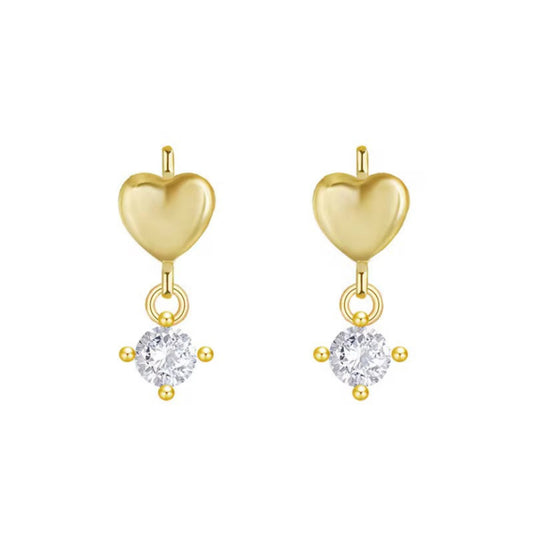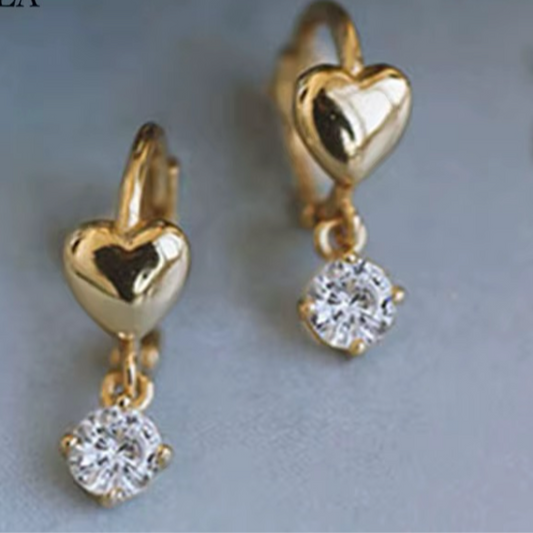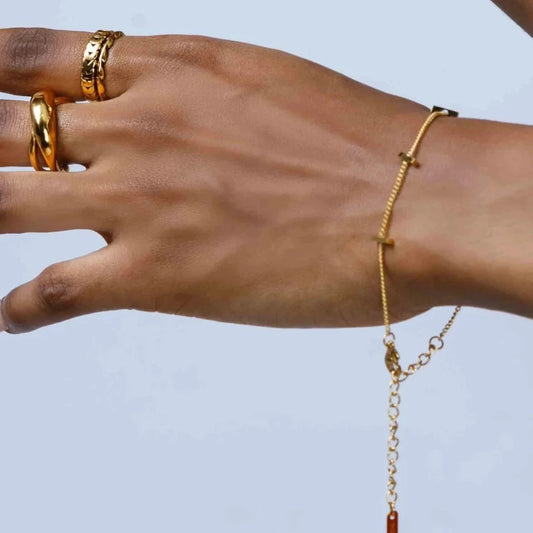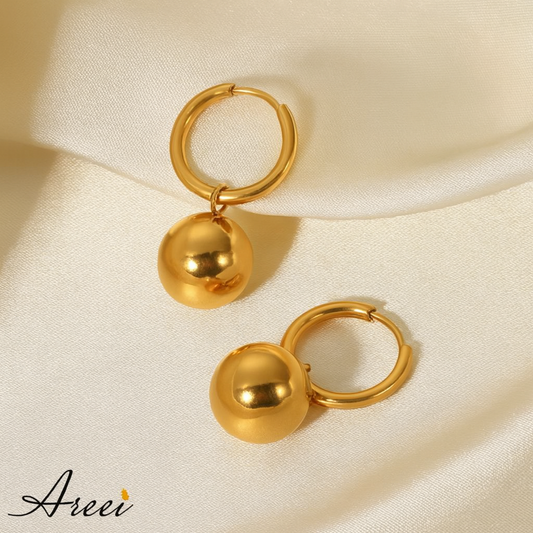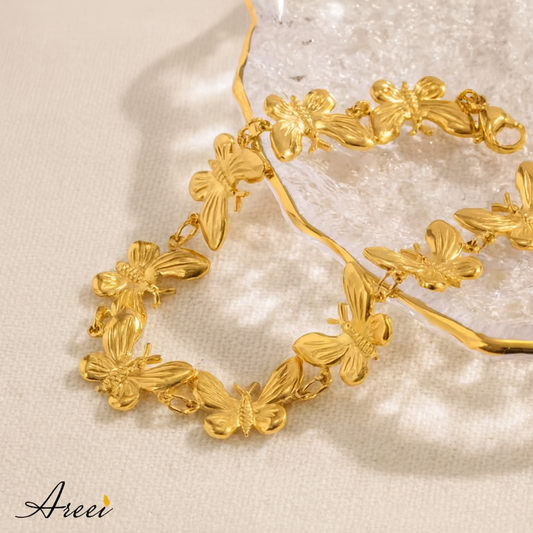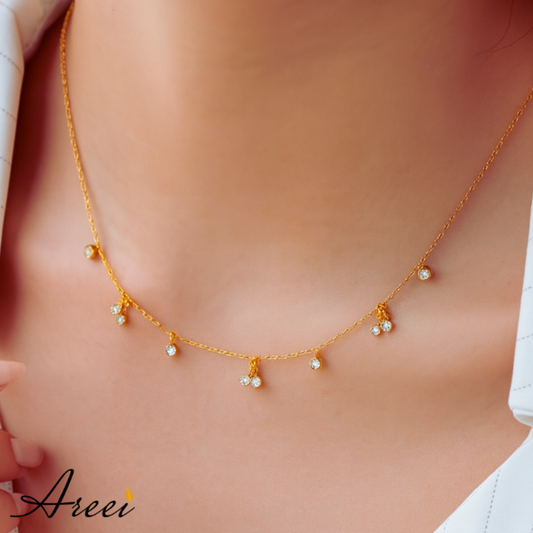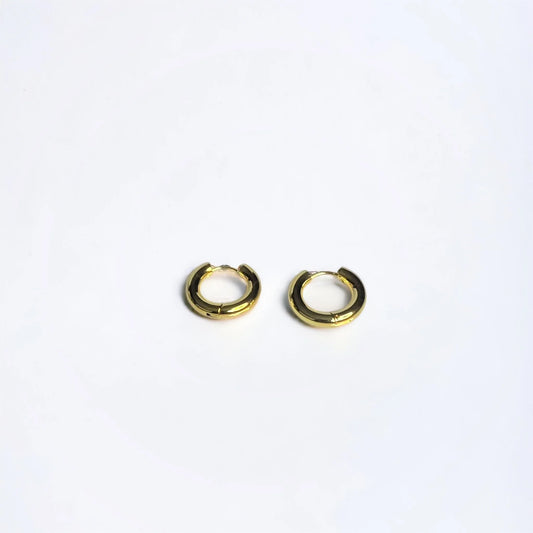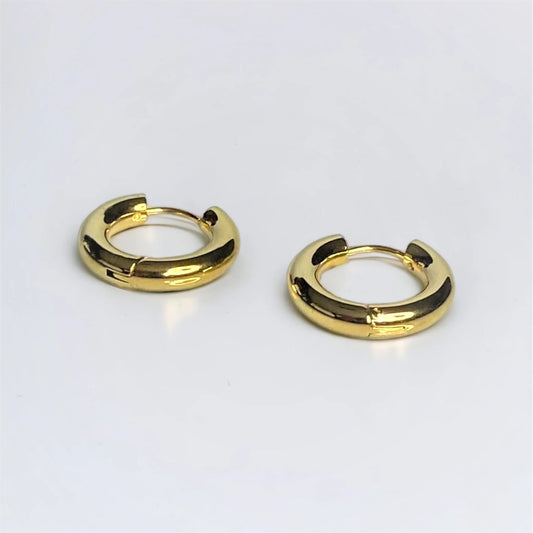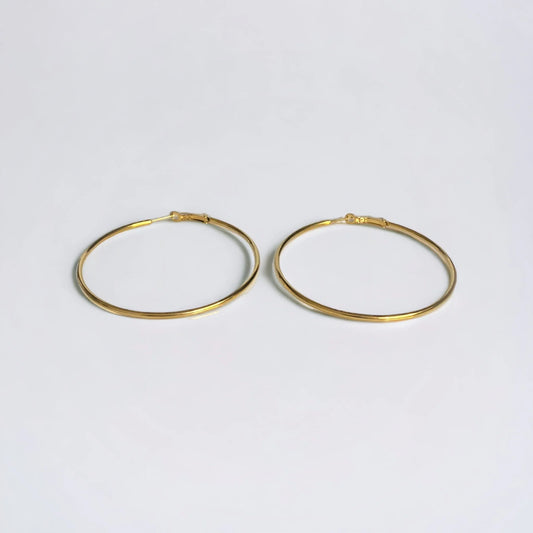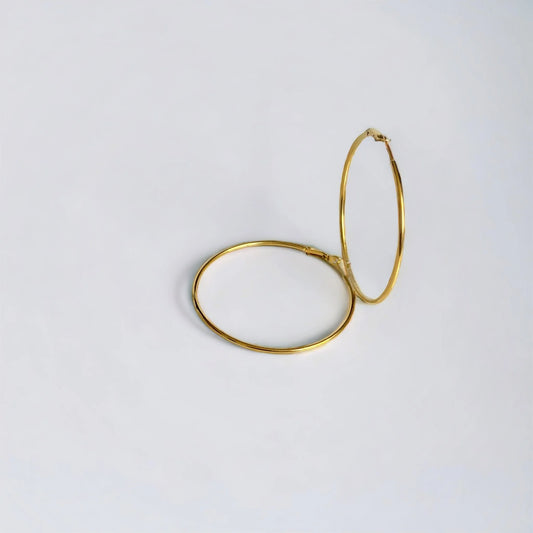Double Horn Gold Earrings from Areei
When purchasing jewellery, whether it's an engagement ring, anniversary gift, or personal treat, asking the right questions can make the difference between a cherished piece and a costly mistake. This comprehensive guide outlines the five most important questions every jewellery buyer should ask to ensure they make an informed decision.
1. What is the Metal Composition and Quality?
Understanding the metal composition is crucial when buying any piece of jewellery. This question helps you determine both the value and durability of your purchase.
Key points to clarify:
- Gold purity: Ask about the carat rating (9ct, 14ct, 18ct, or 22ct). Higher carat gold contains more pure gold but is softer and more prone to scratching.
- Silver quality: Sterling silver (92.5% pure silver) is the standard for quality jewellery.
- Platinum grade: Ensure you're getting genuine platinum, not platinum-plated pieces.
- Hallmarks: In the UK, legitimate precious metal jewellery should bear hallmarks indicating purity and origin.
Understanding metal composition helps you assess whether the price reflects the true value of the piece and ensures you're not paying premium prices for lower-quality materials. For expertly crafted pieces with transparent metal specifications, consider browsing collections at Areei UK, where quality and authenticity are prioritised.
2. Can You Provide Certification for Gemstones?
For any jewellery featuring gemstones, especially diamonds, certification is essential. Reputable jewellers should provide documentation from recognised gemological institutes.
What to look for:
- Diamond certification: Certificates from GIA, AGS, or Gemmological Association of Great Britain
- Gemstone authenticity: Verification that stones are natural, not synthetic or treated
- The 4 Cs for diamonds: Cut, colour, clarity, and carat weight should be clearly documented
- Treatment disclosure: Any enhancements or treatments applied to gemstones
Certification protects your investment and provides peace of mind about the quality and authenticity of your purchase. Never buy expensive gemstone jewellery without proper documentation.
Apple of My Eye Necklace from Areei
3. What Warranty and After-Sales Service Do You Offer?
Understanding the warranty and after-sales service before purchasing can save you significant costs and hassle later.
Essential warranty questions:
- Coverage duration: How long is the warranty valid?
- What's included: Does it cover manufacturing defects, stone loss, or general wear?
- Repair services: Can the jeweller handle repairs, resizing, and maintenance?
- Cleaning services: Do they offer professional cleaning and maintenance?
- Return policy: What's the timeframe and condition for returns or exchanges?
A reputable jeweller should offer comprehensive after-sales support. Be wary of retailers who don't provide clear warranty terms or seem reluctant to discuss post-purchase services. We at Areei stand behind our pieces with robust warranty programmes and excellent customer service.
4. Is This Piece Suitable for Regular Wear?
Not all jewellery is created equal when it comes to durability. Understanding the piece's intended use helps you choose appropriately and care for it properly.
Durability considerations:
- Daily wear suitability: Some pieces are designed for occasional wear only
- Care requirements: Different metals and stones require specific maintenance
- Lifestyle compatibility: Consider your daily activities and how they might affect the jewellery
- Setting security: Prong settings may be more delicate than bezel settings
- Maintenance frequency: How often will the piece need professional attention?
Being honest about how you plan to wear the jewellery ensures you select something that will last and continue looking beautiful with your lifestyle.
5. Can You Explain the Pricing and Value?
Understanding how jewellery is priced helps you make informed decisions and ensures you're getting fair value for your money.
Pricing transparency questions:
- Price breakdown: What factors contribute to the total cost (materials, craftsmanship, brand premium)?
- Market comparison: How does this price compare to similar pieces elsewhere?
- Investment value: Will this piece hold or appreciate in value over time?
- Payment options: Are there financing options or payment plans available?
- Insurance recommendations: What insurance value should you declare?
A knowledgeable jeweller should be able to explain their pricing structure clearly and help you understand what you're paying for. This transparency indicates professionalism and builds trust.
Nour Tennis Necklace from Areei
Additional Tips for Jewellery Shopping Success
Research before you buy: Familiarise yourself with current market prices and trends in jewellery to avoid overpaying.
Shop from reputable dealers: Choose established jewellers with good reputations and proper accreditations.
Get everything in writing: Ensure all promises, warranties, and specifications are documented in your receipt or contract.
Consider timing: End-of-season sales and special promotions can offer significant savings on quality pieces.
Trust your instincts: If something feels wrong or too good to be true, take time to research further before committing to a purchase.
Asking these five essential questions when buying jewellery empowers you to make confident, informed decisions. Whether you're purchasing a special occasion piece or adding to your everyday collection, understanding metal quality, gemstone certification, warranty terms, durability, and pricing ensures you get the best value for your investment.
Remember, reputable jewellers welcome these questions and should provide clear, comprehensive answers. If a retailer seems reluctant to discuss these points or cannot provide adequate information, consider shopping elsewhere. Your jewellery purchase is an investment in beauty and craftsmanship that should bring joy for years to come.
Take your time, ask questions, and choose pieces that not only look beautiful but also meet your practical needs and budget requirements. With the right approach, you'll find jewellery that becomes a treasured part of your collection.

